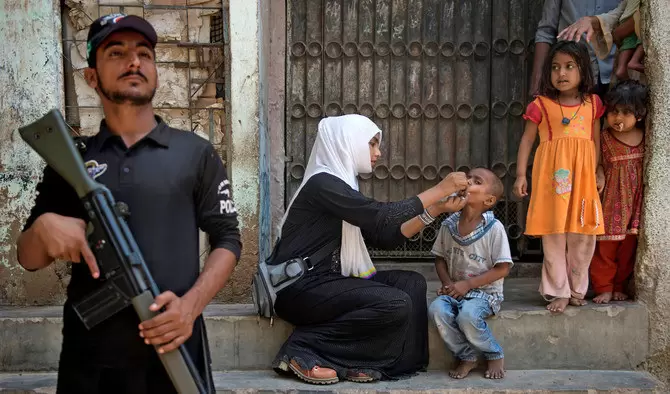
Unsung Heroes: Challenges Faced By Women Polio Workers In Pakistan
Women polio workers, particularly those tasked with administering polio drops to children, face a myriad of challenges. During a conversation with one of these workers, she shared,“In our society, men aren't allowed to enter households, which is why women accompany them. This also explains our greater numbers. However, we face greater difficulties too. Along with fieldwork, we must manage our households, as our shifts end late. Our pay is meager and barely meets basic needs. On top of that, some people stare at us as though we're from another world.”
Most of these women belong to marginalized and financially struggling segments of society. Be it scorching heat or cold, they venture door-to-door, vaccinating children against polio for a mere 15,000 to 20,000 rupees a month. In some homes, they endure harsh remarks and disrespect, yet they are compelled to complete their work under constant pressure from their supervisors.
Also Read: Attack on DC Kurram's Convoy Condemned as Plot to Sabotage Peace Accord
In remote areas, these workers face additional hardships, including long journeys with little to no support. Basic amenities like washrooms or accommodations are often unavailable, leaving them exhausted after miles of travel. Yet, they return to their abodes only to prepare for another day of demanding fieldwork.
Despite wearing caps that identify them as polio workers, these women often endure unwarranted stares from onlookers, as if their work diminishes their identity. Prolonged exposure to harsh weather impacts their health and appearance, but their resilience stems from necessity. Many of these women support sick parents, disabled spouses, or widowed mothers with several children to care for. For them, this job is not just a livelihood-it's survival.
These women polio workers deserve our respect, encouragement, and support. They perform an essential service, ensuring a healthier future for our children despite the challenges they face. Health is one of life's greatest blessings, and these workers dedicate themselves to safeguarding it.
The government must provide better facilities for these workers, including transportation and significant pay raises. In today's economy, a salary of 20,000 or even 25,000 rupees is insufficient to cover even ]necessities, let alone the additional expenses of a family. These women need financial security and logistical support to continue their noble mission with dignity and ease.
Let us recognize their contribution, treat them with kindness, and appreciate their unwavering dedication. They are not just workers-they are unsung heroes making a profound difference.

Legal Disclaimer:
MENAFN provides the
information “as is” without warranty of any kind. We do not accept
any responsibility or liability for the accuracy, content, images,
videos, licenses, completeness, legality, or reliability of the information
contained in this article. If you have any complaints or copyright
issues related to this article, kindly contact the provider above.

















Comments
No comment